A few years ago, I was appointed sole executor of a will without any warning. I thought I’m the executor of a will, what do I do?
I searched for some information about the duties of an executor, but I found it hard to find any clear and detailed information. That is the purpose of this blog post. We’ve even included an “Executor of Will Checklist”.
This information relates to the laws and practices of Tasmania, Australia. These principles will be similar to other states of Australia, but not identical. If you’re reading this post from a place other than Tasmania, see a lawyer in your local area before you proceed.
What Is The Role Of An Executor Of A Will?
What’s An Executor?
An executor is a person named in a will to take charge of the deceased’s assets and property. They also need to ensure that all outstanding debts, charges and taxes are paid. After that, they can distribute the remaining assets to the beneficiaries of the will.
The duties of an executor include reviewing the deceased’s assets and arranging for those assets to be valued. The executor may also arrange, with their solicitor’s help, an application to the Probate Registry of the Supreme Court for a grant of probate. The grant of probate is the formal certificate that the Court accepts that the Will is valid and the person appointed is to be given the power to administer the estate of the deceased.
Do You Need An Executor For A Will?
If there is no executor, you will make life harder for your next of kin at a time of grief.
It’s best to appoint at least one executor, even better to appoint a second executor in case the first one is unable to carry out the administration duties, or they need to share responsibility, or have different and complementary qualities and skills.
How Many Executors Are Needed For A Will?
It is preferable to have two executors for convenience and reducing risk of fraud, and in case one executor is unable to take up these duties.
How Many Executors Can You Have On A Will?
Can there be 2 executors of a will? What about 3 executors? There is a court preference for no more than 4 executors. It depends on the Estate and the situation of the beneficiaries, but usually there are no more than 3 executors. Having too many can cost extra in administering the estate, as they all have to be involved, sign documents, confer and agree on things.
What’s An Executrix?
This term is not often used now. In the past, an executor was a male person and the executrix was a female.
Who Should Or Can Be The Executor Of A Will?
There are some points to consider when deciding on an executor:
- The potential executor needs to be available and preferably local to administer an Estate easily. If the person you’re thinking of lives on the other side of the country or they travel a lot for work, it may be advisable to nominate more than one executor.
- Select someone you trust. They will have a lot of power in dealing with your assets after you die, and may be largely unsupervised.
- You also need to consider if the potential executor has a conflict of interest in administering your Estate, especially if they are a beneficiary. Avoid placing someone in the position of having to decide between what is in their best interest and the best interests of others.
- Select a person who you think will outlive you.
- The potential executor needs to be relatively organised, will take advice from a lawyer and be good with administration and finance tasks.
Can A Spouse Be An Executor Of A Will?
Yes, a spouse can be an executor for his or her spouse’s Estate; in fact, this is often the case among married or de facto couples.
Can A Lawyer Be An Executor Of A Will?
Yes, a lawyer can be nominated as executor of a will. Again, preferably two.
How To Appoint An Executor?
Appointing an executor of an estate is a matter of nominating them in your Will. When Probate is granted, the executor is officially appointed by the Supreme Court of Tasmania.
When Do The Executor Duties Begin?
The assets in the Estate are entrusted to the executor from the moment of death (Administration & Probate Act 1935, section 4). This gives the executor the power to carry out his or her duties.
How To Relinquish Executor Duties?
If a person named in a will as an executor does not wish to act, he or she can renounce the position by signing a formal renunciation document. That document takes effect when it is filed in court. You can not renounce after you have started dealing with the estate, so it must be done promptly after death of the testator.
Alternatively, an executor can, with the consent of the Supreme Court, appoint the Public Trustee to act, unless expressly prohibited by the terms of the Will.
How Long Does An Executor Have To Distribute The Contents Of The Will?
It can take 6 – 18 months or more to administer a person’s Estate. This is subject to the volume and nature of the assets and liabilities and the terms of the Will, and any arguments which might arise between beneficiaries and disappointed family members – due to the terms of the Will.
A deceased estate can exist for longer if the Will is subject to life interests or other trusts, or if it involves substantial assets, or if beneficiaries or non-beneficiaries make claims or are in dispute.
Does The Executor Have Power Of Attorney?
It is not uncommon for an executor to have already been granted a formal Power of Attorney or other authorisation (such as a duplicate account or bank access card) by the deceased.
Any Power of Attorney or other authorisation is automatically cancelled by death of the individual.
If the executor needs to continue conducting business “on behalf of the deceased”, the executor should make it clear to the business that they are doing so as executor and not as attorney or authorised account operator.
In this case, you will often be asked to produce a certified copy of the will and probate to prove your authority. Before Probate is obtained (which can take 3 months or more) assets can only be realised / sold with the specific order of the Supreme Court. So there is a delay before action can be taken. In case of urgency, application to the Court can get authority to act quickly to protect assets.
Does The Executor Of The Will Have The Final Say?
The executor’s aim is to distribute the assets according to the terms of the will and the law.
Sometimes this becomes complicated when two or more beneficiaries each want the same object, and even claim that it was promised to them by the deceased, or a family member wants more than has been given in the will.
The executor may find themselves in a mediation capacity and will attempt to resolve the argument to everyone’s satisfaction. The executor’s decision can be final but beneficiaries do have the opportunity in certain circumstances to seek court intervention and overturn the decision of the executor. Also, an executor might prefer, rather than make a contentious decision, to refer it to the court for guidance.
What An Executor Cannot Do
An executor has a duty of trust to the beneficiaries and the deceased. The executor cannot do things contrary to the terms of the Will or court order.
Does The Executor Have To Follow The Will?
Yes, the executor must follow the requirements and specifics of the Will.
What To Do If The Executor Does Not Follow The Will
If the executor is not following the Will or is not administering the Estate with care, or is unduly delaying administration, or is obviously incompetent, the beneficiaries can bring an action in the Supreme Court of Tasmania to constrain or replace the executor.
Can The Executor Of A Will Take Everything?
Regardless of the trust placed in the executor by the deceased, dealing with a lot of money can be very tempting for some people.
If you suspect that the executor is not dealing with the Estate appropriately, or favouring themselves, consult your lawyer. Protective action can be taken.
What Happens If There Is No Executor Of The Will?
A will without an executor means there is nobody specified to administer the estate. The Supreme Court of Tasmania will appoint someone to act as executor, based on the proximity ‘in blood’ of people available and willing to take the responsibility. But an application needs to be made and extra expense is incurred.
What Happens If The Executor Of A Will Dies?
If the executor dies before the deceased, another nominated executor can step up. If there was only one executor nominated, the executor of the person appointed executor in the will of the executor who died becomes the new executor.
If the executor dies after the deceased, the administration of both Estates will become the responsibility of the executor’s executor.
Can A Beneficiary Be An Executor Of An Estate?
The short answer is yes. Most of the time the will names a family member to be the executor, and frequently, this person is also a beneficiary.
What Happens When Someone Named In A Will Dies?
A well drafted Will needs to cover such eventuality. Where you have a bequest to one person, you can nominate it to another person if that person dies before the death of the testator. Otherwise the gift may fail, and fall into the residue to go to whoever is nominated in the will to take what is remaining.
Does The Executor Of A Will Get Paid?
If the will does not provide for payment (commission) to an executor, he or she can seek commission from estate assets by application to the Supreme Court, or by negotiation with the residuary beneficiary to be paid a fee for what is termed the ‘pains and troubles’ of administering a deceased estate.
This is usually done at or near the conclusion of administration, before final distribution, and requires a full accounting of the estate assets and liabilities to be presented to the court.
A wise testator will think about this at the time of doing the will, and allow the executor a gift or a specific commission in the terms of the will. A gift might not be taxable, but express commission is likely to be taxable.
Duties And Responsibilities Of The Executor Of A Will
The first step for the executor is to see the solicitor holding the will. It is necessary for the executor to become familiar with the deceased’s wishes, the details of the Estate, and the liabilities and process.
The Funeral
The next duty of an executor is to arrange the funeral, or at least oversee the in their arrangement. Check the will, as sometimes the deceased has expressed wishes about funeral arrangements, such as burial or cremation, public notices or a wake.
Most financial institutions, on application of the appointed executor, will pay from the deceased’s account the funeral account without the need for a Grant of Probate.
If there is no money available for the funeral, the appropriate Tasmanian Government department or Centrelink may be able to assist with funeral expense. If there is no money for the funeral, it is unlikely that it will be necessary to administer the deceased’s estate, apart from to arrange the funeral.
Tasks For The Executor
The executor should engage a lawyer to assist with their role and responsibilities. The legal costs in managing the estate and distribution of assets will be paid from the estate assets. Butler McIntyre & Butler has a strong and experienced team to assist in estate and probate matters.
- The executor should familiarise themselves with the deceased’s assets as soon as possible.
- Whilst the Estate is being administered, the executor must consider adequate provision for:
- Any dependants
- Any pets
- The safety of all assets, including arranging insurance if necessary
- The management of any property, investments or ongoing business owned by the deceased
- The executor should check:
- The due dates of insurance
- Motor vehicle registrations
- The payment of mortgage liabilities, income tax and other debts falling due
- Any other matters, including the cancellation of credit cards, where failure to promptly act might cause jeopardy to the estate
- Where debts are due, the Executor should make the necessary arrangements to pay them, or advise the creditor there will be a delay in payment.
- The executor must receive all money due to the estate and keep proper written financial records of money received or paid. All money for the estate should be kept in separate new bank or solicitor trust accounts, and liabilities paid out of that account.
- An executor must always keep his or her own money and affairs separate from those of the deceased estate. This is absolutely essential where the executor is also a beneficiary under the Estate.
- The executor should contact any business or people providing ongoing services, such as telephone, electricity and insurance. They need to be advised that future services are to be billed to the Estate of the deceased, or terminate the account. The executor may also wish to provide their own contact details so that accounts can be properly monitored.
- There are taxation issues that need to be considered by an executor as well. The executor stands in the shoes of the deceased person regarding their obligations and liabilities to the Australian Tax Office.

Next Steps For The Executor
Once these tasks have been completed, the executor needs to identify all the assets and liabilities of the deceased and undertake a general valuation.
Where there is any doubt, the executor should contact the organisations with which the deceased held assets to determine the organisation’s requirements for transfer of those assets to the executor or the beneficiaries.
Once a Grant of Probate/Letters of Administration has been obtained, or it is decided that one is not required, the next duty of an executor is to collect and realise/sell/turn into cash the deceased’s assets, or distribute them to the beneficiaries in their then current state of investment (eg shares, cars, other personal property or real property can be given straight to the beneficiaries).
Some assets such as jewellery and domestic chattels will pass into the executor’s possession and nothing further will be required to transfer ownership. They can be given in their current form to the appropriate beneficiary.
The assets may be distributed according to the will, or they may be sold to provide cash to the Estate. The resulting funds will be distributed to the beneficiaries later.
A proper accounting of the value of items distributed is necessary to ensure the distribution is in accordance with the beneficiaries’ rights under the Will.
Sometimes a certified copy of the Probate/Letters of Administration or other evidence of ownership and death needs to be produced before title passes to the executor. Butler McIntyre & Butler can assist in this process.
Once the assets have been realised, the executor must pay all the deceased’s debts and any debts incurred by his or her estate. This includes unpaid funeral expenses and the legal costs of assisting the executor/administrator in administering the Estate. To do this, an executor has power to sell or mortgage the property of the deceased (Administration & Probate Act 1935, Section 39).
Tax must be paid on any income earned by the estate from estate funds. Tax returns will need to be prepared, lodged and assessments obtained from the ATO. If income or capital gains are made during administration of the estate, money may need to be retained until the next financial year, to be able to lodge returns and pay tax.
A final income tax return plus any tax return not lodged by the deceased needs to be lodged and any assessment paid.
If there is any doubt regarding debts owed by the Estate, there is a procedure under s 54 of the Administration & Probate Act 1935 whereby an executor can publish an advertisement calling on creditors to lodge their claims against the Estate. This procedure also affords protection to an executor against claims by creditors of which the executor is unaware at the time of distribution of the estate.
If the assets are insufficient to pay all of the expenses, legislation lays down an order of priority that determines which debts are to be paid first (Administration & Probate Act 1935, Section 34). Generally, administration costs for the estate (including legal costs), funeral expenses, medical expenses and unpaid taxes must be paid out first. After those costs are paid, creditors are paid according to their legal priorities.
The executor should then check to see if the Will has been challenged by a family member who considers that they haven’t been given what they need and is fair.
If the executor distributes the estate before all claims have been satisfied or disputes resolved, he or she can be personally liable for the debts/claims.
A challenge to the terms of the Will can be made under the Testators Family Maintenance Act 1912 by any of the following people, if they consider that they are left without proper maintenance and support under the Will:
- The widow/widower of the deceased person
- The children of the deceased person, including step-children
- The parents of the deceased person, if the deceased person dies without leaving a widow/widower or any children
- A person whose marriage to the deceased person has been dissolved or annulled, and who at the date of the death of the deceased person, was receiving or entitled to receive maintenance from the deceased person. This could be pursuant to an order of a court, or to an agreement or otherwise.
- A person who was a de facto spouse of the deceased person at the date of the deceased person’s deathAn application to challenge the terms of the Will must be made within 3 months after the Grant of Probate. If successful, the distribution ordered by the court will prevail over the terms of the Will. The court can extend the time for an application.Finally, when the deceased’s assets have been realised and the debts paid and disputes resolved, the executor distributes the balance of the estate according to the directions contained in the deceased’s will. If there is any uncertainty about how or to whom the residue should be paid, an application to the Supreme Court may be necessary to resolve the uncertainty.
This duty to distribute the estate may require the continuing obligations of a trustee. For example, if the beneficiaries are young children the executor must hold and invest the estate funds until their eighteenth birthday or such later date specified in the Will.
Executor’s Duties To The Beneficiaries
Does An Executor Have To Notify Beneficiaries?
The beneficiaries have a right to see the Will. An executor should notify beneficiaries of their entitlement and that they will be advised in due course of progress in administration of the estate.
When Should An Executor Notify Beneficiaries?
The executor should notify beneficiaries promptly of their entitlement. The executor may rely on family members to pass on the information, if certain the message is getting through.

What Happens When There Is No Will
If a person has “died intestate”, that means that they died without a Will, or if there is Will, it’s not valid.
In this case, the next of kin needs to apply to the Supreme Court for Letters of Administration.
There is an order of priority as to who can apply for Letters of Administration and how an estate is to be distributed. If an application for Letters of Administration is required for your matter, Butler McIntyre & Butler can provide you with other information to explain this for your particular situation.
How To Become Executor Of An Estate Without A Will
Generally it will be necessary to see a solicitor to get help. You need to address the Intestacy Act, and the Administration and Probate Act, and decide who has the right to apply, if they will do it, what assets there are to support the cost of applications, and who gets the estate when no will is in place, and deal with any claims by family who consider the legislation rules for distribution is not fair to them and does not provide necessary money or other assets.
What Happens To Property When There Is No Will?
The Intestacy Act specifies distribution amongst spouse, children, parents, grandparents, uncles and aunts, cousins, in a complicated order of priority.
Can Cousins Inherit Under An Intestacy?
Under the Intestacy Act 2010, there is a strict order of how the assets would be distributed to persons who would be considered beneficiaries of the estate. Cousins are not near the top of the list.
Wills And Probate
What Is Probate?
A Grant of Probate is an order of the Supreme Court of Tasmania stating that the will is valid and that the executor has the right to administer the estate.
Letters of Administration is an application where there is no Will.
It can take some months to gather relevant information and to prepare an application and associated declarations for probate or letters, and the Supreme Court Probate Registry may take some weeks or months to assess the application for Probate or Letters of Administration, or require further evidence.
The Supreme Court Probate Registry can also ask questions and seek further details about the deceased, the Will and Estate papers.
Is Probate Required?
Small bank accounts, some shares, motor cars and furniture and personal belongings can often be administered without the need for a Grant of Probate/Letters of Administration.
Superannuation and or life insurance often passes independently of the deceased’s Estate.
Jointly owned assets such as real estate that the deceased owned as joint tenant, passes to the surviving co-owner without the need for a Grant of Probate/Letters of Administration. However transfer and vesting documents need to be prepared and registered with the Land Titles Office.
When Is Probate Needed?
However, a Grant of Probate/Letters of Administration is always required for other (non-jointly held) real estate. It is also usually required for assets of large value that require a third party, such as a bank or company secretary, to undertake some tasks before legal ownership can pass.
If Probate or Letters of Administration are required, there are particular documents that need to be completed and documentary evidence provided to the Supreme Court Probate Registry.
Is Probate Necessary If There Is No Property?
It depends on the size of the Estate.
A smaller bank account and basic possessions can be settled and distributed without Probate.
However, if the assets of the Estate are valuable, Probate will probably be necessary. Give us a call and we can help you out with that decision.
What Happens If No One Applies For Probate?
Normally, if there are assets, a beneficiary will become aware of their entitlement, and if the appointed executor does nothing, the beneficiary can apply to the Supreme Court for an order that he/she administer the estate.
If you need any help with your duties as an Executor, please give Butler McIntyre & Butler a call on 6222 9444 and speak to one of our experienced estate and probate lawyers.
Disclaimer: this content is intended as a general and brief summary of an area that may be of interest. It does not constitute legal advice and should not be relied upon as such. Use of this information does not create a solicitor-client relationship between the reader and Butler McIntyre & Butler. Formal and specific legal or other professional advice should always be sought.
Butler McIntyre & Butler endeavours to ensure published content is current and accurate but makes no guarantees or representations to this effect. Butler McIntyre & Butler excludes liability, to the maximum extent permitted by law, for any loss suffered in connection with the use of this content.


